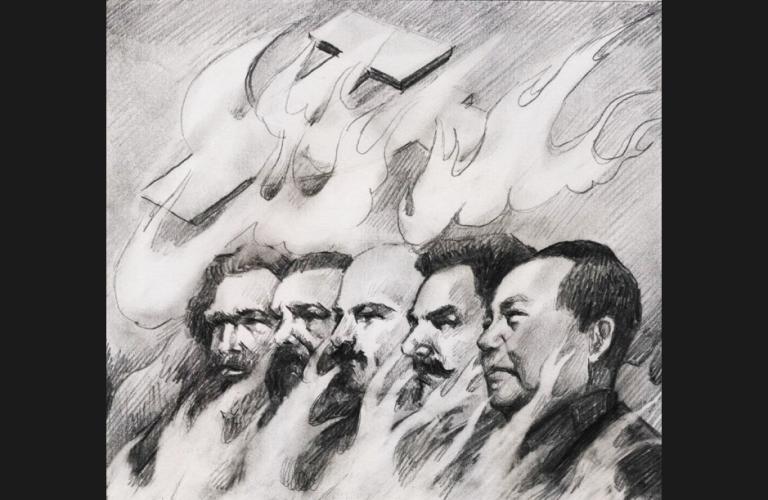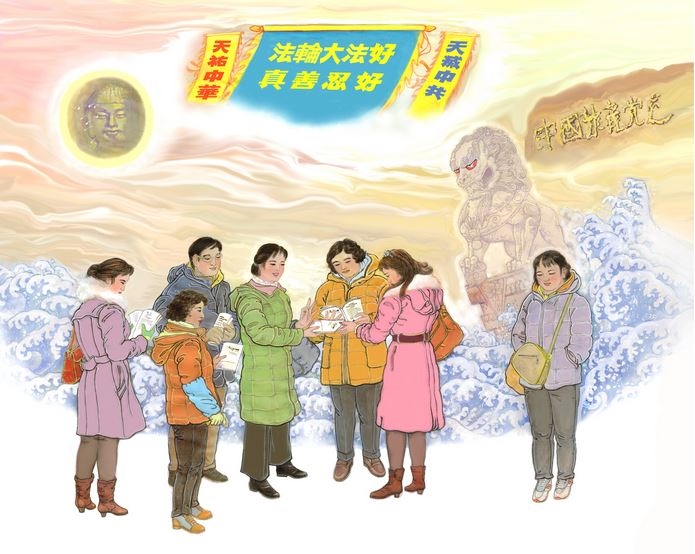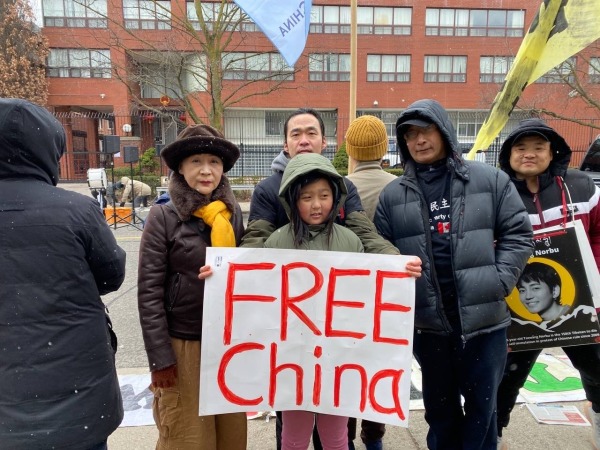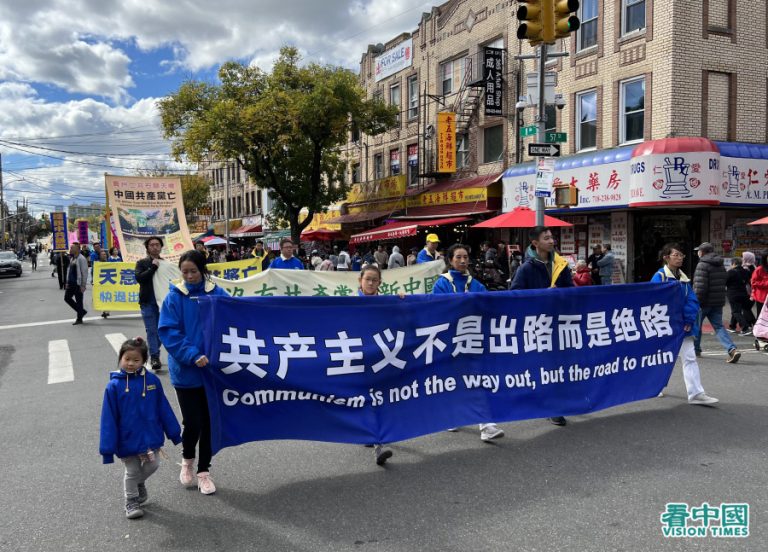First published in 2006 by the Chinese-language Epoch Times, this series lays out in detail the vast system of Communist Party culture that dominates mainland China today and how it violently replaced the ancient moral and spiritual heritage of the Chinese people. Vision Times is proud to present a translation of Disintegrating the Culture of the Chinese Communist Party that sheds light on the fundamental characteristics of the world’s biggest communist state, while keeping true to the message intended by the original authors.
Chapter One: Traditional Chinese Culture and Communist Party Culture (Part V)
Continued from Chapter One (Part IV).
Destroying traditional Chinese culture and faith
Ancient China was a civilization that valued loyalty, filial piety, benevolence, and righteousness as virtues required of humanity by the divine. The “Eulogies of Zhou” in the Classic of Poetry reads: “The ordinances of Heaven/How deep are they and unintermitting!” The Chinese believed firmly that gods or heaven were the ultimate judge of morality and goodness.
With the introduction of Buddhism to China some two thousand years ago came faith in reincarnation and the concept of karmic retribution. The idea that good will be rewarded and evil punished became a fundamental belief in Chinese society.
Chinese civilization is unique for its high degree of religious and intellectual tolerance. Throughout most of history, the three schools of Confucianism, Daoism, and Buddhism coexisted in harmony, as well as different doctrines within these schools of thought. Religions later transmitted to China from the West, including Islam and Christianity, also became accepted as minority faiths compatible with the larger Chinese culture. Despite China’s long history, there have been virtually no wars fought between religions or sects.
Success
You are now signed up for our newsletter
Success
Check your email to complete sign up
Under the Chinese Communist Party, culture became a matter of life-and-death ideological struggle. The Land Reform and other bloody campaigns of the 1950s targeted the landed gentry and religious practitioners — who played an indispensable role in the preservation and transmission of traditional Chinese culture in rural regions — for class genocide. The Anti-Rightist Campaign of 1957 decimated the intellectuals who dared voice their opinions about communist rule, and was soon followed by the Great Chinese Famine, in which around 40 million people died.
The Cultural Revolution (1966 – 1976), which sought to “smash the Four Olds,” saw Red Guards run amok across the country, destroying or desecrating whatever ancient artifacts, artwork, architecture, or documents they could. Virtually all intellectuals were criticized; many were beaten, murdered, or driven to madness or sucide. The horrors of the CCP’s campaigns and the damage done to Chinese civilization by its rule are incalculable. Meanwhile, the mass murder and destruction helped establish, by lessons of blood, the Communist Party culture that dominates China today.
Rewriting history
Generations growing up after the Cultural Revolution have been largely spared the overt persecution and killing that characterized the early years of communist rule. But they have been all but cut off from China’s genuine heritage, as the CCP censors and redefines the five thousand years of Chinese history.
Perhaps no ancient culture has placed as much importance on history as the Chinese civilization, which has verifiable records going back nearly three thousand years to the Western Zhou Dynasty. According to legend, the creator of Chinese characters, Cang Jie, was the official historian in the court of the Yellow Emperor.
Chinese scholars regarded the accurate recording of historical events with the same solemnity as religious ritual; in Confucianism, this is known as “historical virtue.” In one episode from the Spring and Autumn Period (770~476 B.C.), three court historians of Qi State let themselves be executed rather than cover up for a regicide. The fourth historian was spared, and allowed to write the line “In summer, the fifth month of the year yi-hai, Cui Zhu murdered his lord.”
Han Dynasty scholar Sima Qian, who suffered the punishment of castration, dedicated his life as a eunuch to the completion of the Records of the Grand Historian. This magnum opus contained 500,000 Chinese characters and covered the entire known history of the dynasties up to the then-reigning Emperor Wu. The precedent set by Sima was continued by court scholars in all subsequent Chinese dynasties, who would describe in great detail the happenings of the previous empire. Commentaries by these Confucian scholars provide valuable insight into the bureaucracy, technology, economics, music, as well as geological and astronomical observations of their times.
Drawing the correct lessons from the past was seen as indispensable for rulers as well as intellectuals. Sima Guang, of the Northern Song Dynasty, authored a meticulous 295-chapter account covering a period of nearly 14 centuries. He titled his work Zizhi Tongjian — “A Comprehensive Mirror in Aid of Governance.”
Under the Chinese Communist Party, “historical materialism” replaced the “historical virtue” (史德) spoken of in ancient China. To cover up its vast abuses and treachery, the CCP persecuted and brainwashed intellectuals, took over education, and seized control of the mass media. Throughout its entire existence, the Party has written and rewritten historical events to invariably establish itself and its doctrines as “great, glorious, and correct.”
Deceit, malice, struggle
In the short-lived Qin Dynasty (221–206 B.C.), the eunuch Zhao Gao, upon usurping power, tested the loyalty of the court ministers by pointing at a deer and calling it a horse. Officials who insisted on correcting the corrupt eunuch were sidelined, while those who went along with the charade earned Zhao’s trust and favor.
While the idiom “point deer, make horse” described a chaotic episode of court intrigue, the CCP has imposed the same deceit across all of Chinese society. It replaces the traditional faith of ancient China with its militant atheism, and subordinates morality to the needs of class struggle. It suppresses all independent beliefs and culture, labelling all of Chinese history as backward “feudalism.” In this spiritual vacuum, the CCP anoints itself and its leaders as living gods, and enforces its ideology as a secular religion, to be followed unquestioningly.
The Communist Party used not just directives, but also plays, movies, songs, music and other forms to establish its omnipotence: it forced people to chant slogans and dance in praise of the Party; slogans encouraged the populace to “ask orders in the morning and report back in the evening” to the authorities. Even today, the CCP’s propaganda and political education are replete with phrases such as “study repeatedly,” “understand thoroughly,” “carry out completely,” or “pay attention to implementation” when it comes to the speeches of the highest Party leaders.
Having dispensed with the universal principles of truth, compassion, and tolerance, the CCP imposed an absolute tyranny dependent on a combination of deceit, malice, and struggle. By denying the existence of the divine, the Communist Party takes the place of the divine, claiming to be the sole arbiter of material truth. To justify its tyrannical rule and ideology, it must always remain infallible and its leaders unimpeachable. Hence, the CCP uses lies, murder, and suppression to force all those under its rule to conform to its narratives and participate in the struggle against whomever the Party designates as the enemy.
When people of faith encounter tribulations, they seek deliverance through prayer or repentance. The atheists of the CCP have nowhere to go, except to trust in the slogan “When there are difficulties, seek help from the organization.” They hope the Communist Party will find a solution, unaware that at the root of the problem is communism itself.












